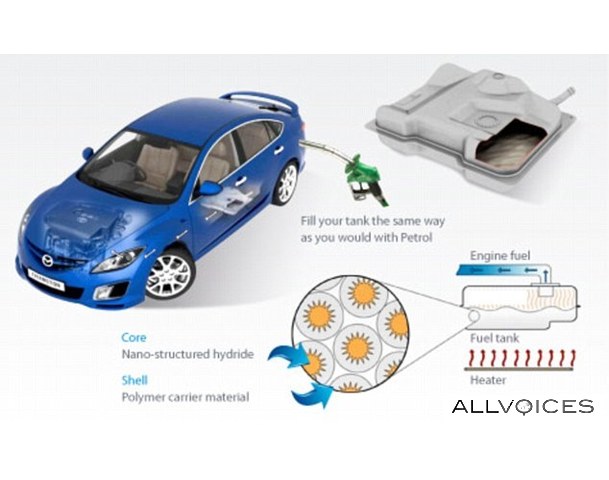British Scientists Invent Hydrogen Based and Cheaper Artificial Gasoline
- Featured
- 1 Comment on British Scientists Invent Hydrogen Based and Cheaper Artificial Gasoline
- Posted on

 British scientists are refining the recipe for a hydrogen-based fuel that will run in existing cars and engines which could cost just around $1.50 a gallon and is more energy effiicient than the nowadays petrol. The hydrogen-based fuel instead of carbon-based (as it is heavily used in nowadays petrol) doesn’t emit any harmful greenhouse gases in the atmosphere thereby leaving the environment cleaner and better.This decrease in carbon content can really have a positive impact by improving our surroundings.
British scientists are refining the recipe for a hydrogen-based fuel that will run in existing cars and engines which could cost just around $1.50 a gallon and is more energy effiicient than the nowadays petrol. The hydrogen-based fuel instead of carbon-based (as it is heavily used in nowadays petrol) doesn’t emit any harmful greenhouse gases in the atmosphere thereby leaving the environment cleaner and better.This decrease in carbon content can really have a positive impact by improving our surroundings.
The first road tests are due next year and, if all goes well, the cut-price ‘gasoline’ could be on sale in three to five years.

Professor Stephen Bennington, the project’s lead scientist, said:
‘In some senses, hydrogen is the perfect fuel. It has three times more energy than petrol per unit of weight, and when it burns, it produces nothing but water. Our new hydrogen storage materials offer real potential for running cars, planes and other vehicles that currently use hydrocarbons.’
Energy from hydrogen can be harnessed by burning the gas or combining it with oxygen in a fuel cell to produce electricity. But current methods of storing hydrogen are expensive and not very safe. To get round this, scientists from the Rutherford Appleton Laboratory, near Oxford, University College London and Oxford University have found a way of densely packing hydrogen into tiny beads that can be poured or pumped like a liquid.
 Stephen Volker, of Cellar Energy, which is developing the technology, told Gizmag:
Stephen Volker, of Cellar Energy, which is developing the technology, told Gizmag:
‘We have developed micro-beads that can be used in an existing gasoline or petrol vehicle to replace oil-based fuels. Early indications are that the micro-beads can be used in existing vehicles without engine modification. The materials are hydrogen-based, and so when used produce no carbon emissions at the point of use, in a similar way to electric vehicles.’
A tankful of the artificial petrol, which has yet to be given a brand name, is expected to last 300 to 400 miles, in line with conventional fuel.
Now we hope to see the energy effeicient fuel being sold in the near future!
One comment